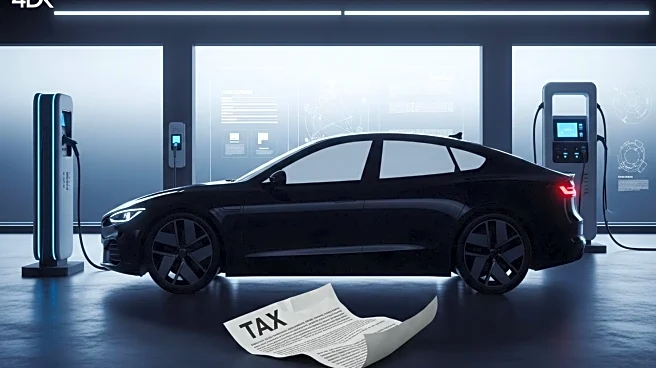What's Happening?
Ford has decided to discontinue its program offering $7,500 discounts on leasing electric vehicles, following a similar move by General Motors. This decision comes after the expiration of federal tax credits for EVs on September 30, 2025. Both automakers had initially planned to extend these discounts through their financing divisions but have now opted to maintain current lease payments without the subsidy. This shift reflects a broader industry trend as manufacturers adjust to changing government incentives and market conditions.
Why It's Important?
The withdrawal of the tax credit discount lease scheme by Ford and GM is significant as it impacts the affordability of electric vehicles for consumers. The federal tax credits have been a crucial factor in promoting EV adoption by reducing upfront costs. With their expiration, automakers must explore alternative strategies to attract buyers and maintain competitiveness in the growing EV market. This development may influence consumer purchasing decisions and could slow the transition to electric vehicles, affecting the industry's efforts to reduce carbon emissions and achieve sustainability goals.
What's Next?
As Ford and GM adjust their leasing strategies, other automakers may reevaluate their approaches to EV financing and incentives. The industry could see increased competition as manufacturers seek innovative ways to make electric vehicles more accessible and appealing to consumers. Additionally, policymakers might consider new incentives or regulations to support EV adoption and address environmental concerns. The evolving landscape of EV financing will likely shape the future of the automotive market, influencing both consumer behavior and industry practices.
Beyond the Headlines
The decision by Ford and GM to abandon the tax credit discount lease scheme highlights the challenges faced by the automotive industry in transitioning to electric vehicles. As government incentives fluctuate, manufacturers must balance affordability with profitability while meeting sustainability targets. This situation underscores the need for collaboration between industry stakeholders and policymakers to develop effective strategies for promoting EV adoption. The shift also raises questions about the long-term viability of current business models and the potential for innovation in financing and marketing electric vehicles.










